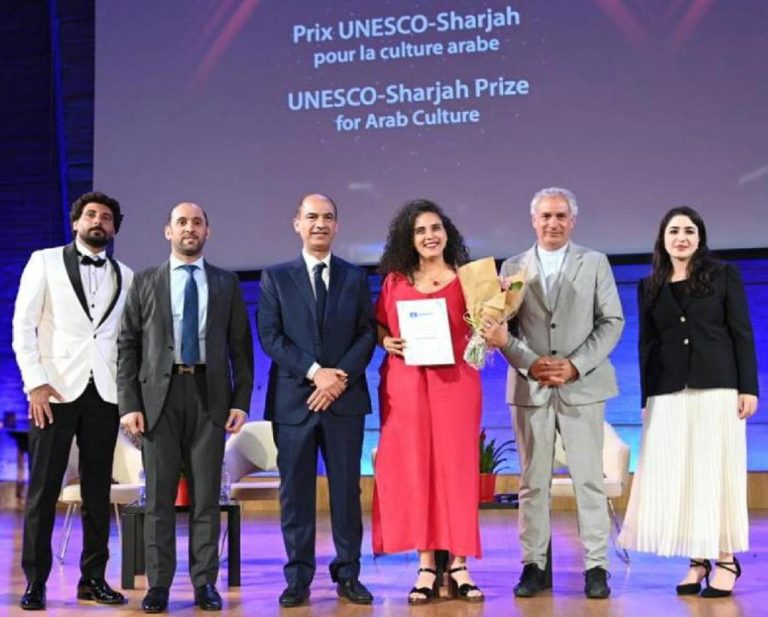São Paulo – Nominations for the 20th edition of the UNESCO-Sharjah Prize for Arab Culture are open. The prize is held in collaboration between the emirate of Sharjah, United Arab Emirates, and the United Nations’ Educational, Scientific and Cultural Organization (UNESCO). Each year, two individuals, groups of people or institutions that have contributed to the promotion of the Arab art and culture are laureated.
Nominees can be individuals, groups of peoples or institutions from any country. In a statement from UNESCO, director-general Audrey Azoulay draw attention to the importance of nominating women and young people for the prize, “to reflect our commitment to gender equality and youth.”
Nomination files can be submitted until January 31, 2024, via email at prix.sharjah@unesco.org. Each nomination must be submitted by the government of the country of the nominee with a recommendation written in English or French including: a description of the nominee and their achievements; an abstract of the works, papers and publications submitted; and an explanation on their contribution towards the prize’s goals.
The nominees have to be internationally renowned in their field and have “significantly” contributed to the promotion and dissemination of the Arab culture.
An international jury of experts made up of five people will select the winners, who’ll be announced by UNESCO and honored at a ceremony to be held at its headquarters in Pari (pictured, 2022 award ceremony). One of the members of the jury is Geraldo Adriano Godoy de Campos, professor in the Department of International Relations at the Federal University of Sergipe. The prize is endowed with a sum of USD 60,000, divided equally between the two prize winners, by the emirate of Sharjah.
Previous laureates include Arab-Brazilian Chamber of Commerce (ABCC) Communication & Marketing vice president Silva Antibas. She was laureated in 2019. João Baptista Vargens, professor of Arab language and civilization at the Federal University of São Paulo, was laureated in 2011.
Translated by Guilherme Miranda









